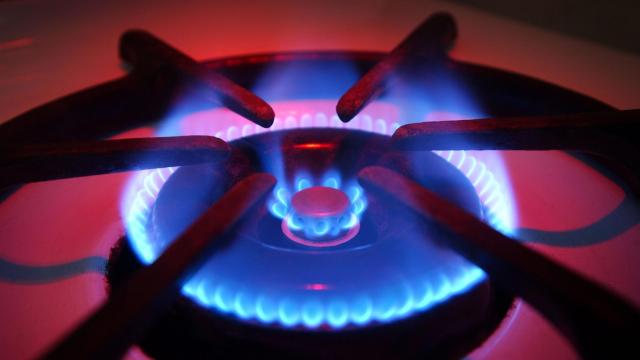The fight to ban natural gas in new buildings is heating up — and so is the opposition. Newly revealed documents show that the gas industry is behind state lawmakers’ coordinated resistance.
Over the past three years, major American cities including Berkeley, San Francisco, and San Jose in California; Seattle; and New York City have passed similar laws banning gas in new construction, and more cities are weighing similar measures in consideration. Statewide campaigns for such restrictions are also brewing.
But also popping up across the country are measures to prohibit municipalities from passing gas bans. On Wednesday, Louisiana’s House of Representatives unanimously approved such a bill. Since 2020, Oklahoma, Tennessee, Arizona, and 15 other states have passed similar ones. These proposals and the campaigns for them all employ similar messaging, claiming to protect “freedom of choice” and “energy choice.” They have won support from utility companies and builders associations. Emails uncovered by the Energy and Policy Institute through a freedom of information request and reported by E&E News show that these measures came as part of a coordinated effort by the gas industry.
The anti-gas ban crusade began last November when utility trade group Energy Solutions Centre began working on messaging with its clients. The emails show, the assertion that gas restrictions are a snub to free choice was a key part of the messaging. The group also put together a report, which noted that its members should connect with “trade allies, builders, and others, resulting in a cohesive message regarding consumer choice.” The reality, though, is that a growing number of Americans oppose extracting more natural gas and support gas bans in new construction (though with some caveats).
The Energy Solutions Centre also focused on the argument that bans aren’t necessary because gas providers can reduce their greenhouse gas pollution by stopping methane leaks or switching to “renewable” gas from animal waste and landfills instead of drilling. They also claim that diverse energy supplies are needed to protect the “greater good.” These talking points all exemplify the fossil fuel industry’s latest favourite strategies, and sidestep key issues such as the fact that reducing emissions and zeroing them out are two different things (the latter is essential to stave off even more severe impacts of climate change).
E&E obtained documents showing the Energy Solutions Centre “has been a forum for utilities to discuss state bills meant to preempt gas bans.” Minutes from a December meeting, for instance, showed that utilities represented by the organisation provided updates to each other on the progress of their anti-ban measures. The minutes show that after one representative of Southeast Gas — which serves Alabama — said her firm was developing talking points, it drummed up interest from other utilities. That led to the group committing to draft talking points for other firms to use.
E&E noted the resulting talking points “have echoed in statehouses.” They’ve been used by lawmakers and corporate representatives all across the country, resulting in the bans on bans and other legislation that has helped prop the industry up.
Previous reporting has shown how the American Gas Association, a larger lobby group, worked on the anti-ban campaign to improve public perceptions of natural gas. The two trade associations have ties; the American Gas Association pays the Energy Solutions Centre’s director’s salary.
This all shows that opposition to gas has the fossil fuel industry breaking a serious sweat. Don’t just take it from me, take it from a gas executive himself.
“For a gas utility, banning new hookups of gas service is an existential threat,” Terrance Fitzpatrick, president and CEO of the Energy Association of Pennsylvania, told E&E News.
But the reality is that continuing to use natural gas is an existential threat to humanity. Methane emissions are also rising faster than ever before in history, and residential and commercial buildings account for some 13% of the country’s annual greenhouse gas output, largely because of the gas used for cooking, heating, and power. Eliminating hookups for the fuel in new buildings can seriously reduce planet-warming pollution and undercut the expansion of gas infrastructure.
It would also bring huge public health benefits. Gas stoves are a massive source of indoor air pollution, so swapping them out in new construction will come with public health benefits. Air pollution from gas is even more deadly than coal in many places. As concerns about all these impacts grow, so will the industry’s effort to promote propaganda to save itself.
